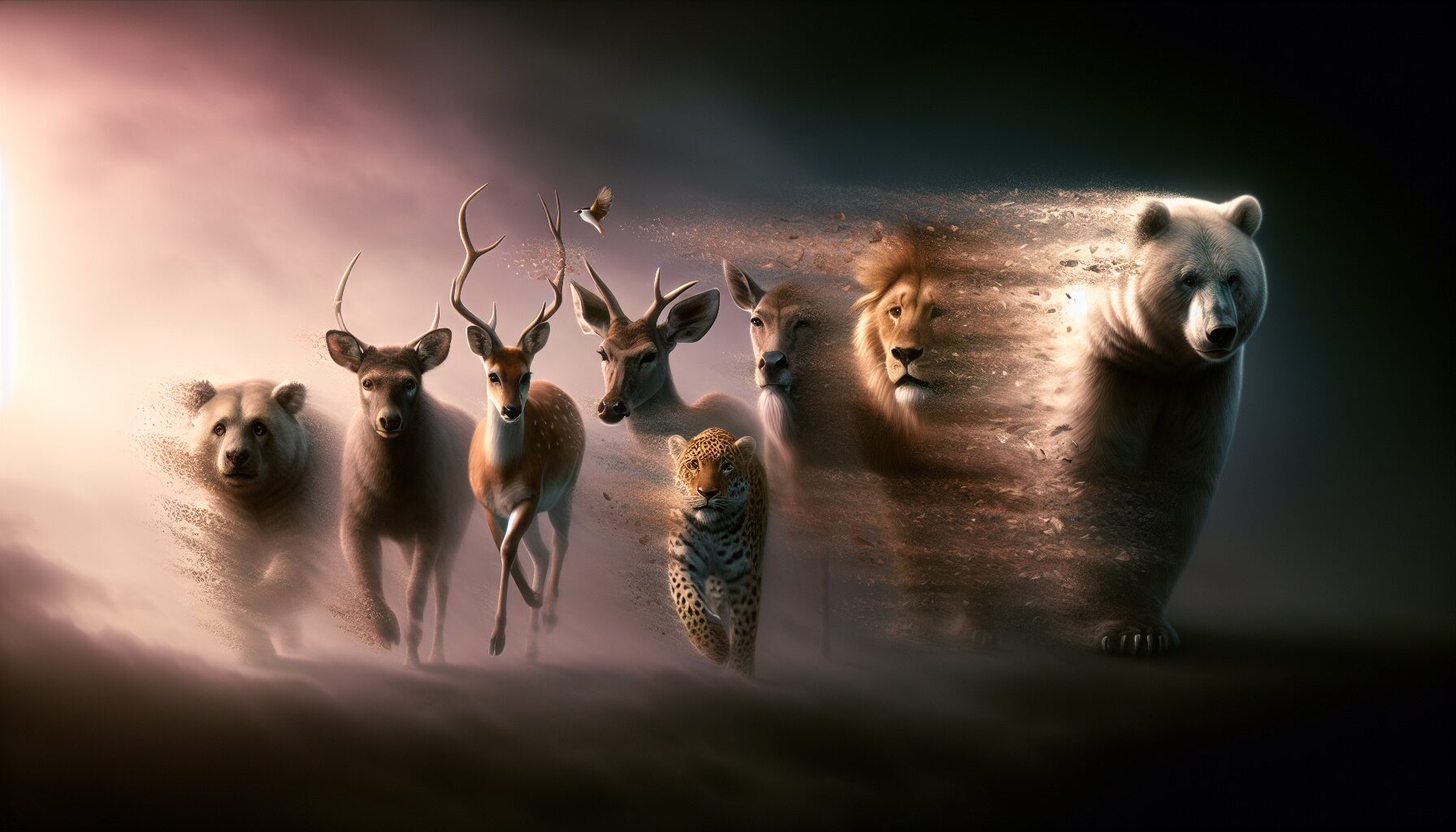The Death of Species – Extinction as Collective Passing
The natural world is in a state of unprecedented change, as species are being lost at a rate that some scientists compare to historical mass extinction events. This phenomenon is often described in ecological terms—habitat destruction, climate change, and overexploitation—but what if we approached extinction as a process akin to collective death and mourning?
Understanding Extinction Beyond Numbers
The statistics are daunting. According to the IUCN Red List, over 38,500 species are threatened with extinction. However, each of these numbers represents a lineage lost forever, a biological entity that will no longer be part of the planet’s tapestry. “We are facing a global biodiversity crisis,” says the IUCN, underscoring the gravity of the situation.
Emotional and Cultural Dissonance
When we discuss extinction, we often fail to engage with the concept emotionally or culturally. Just as the death of an individual resonates through social and familial networks, the extinction of a species impacts the ecosystems and human communities intertwined with it. Conservationist Aldo Leopold once observed, “To keep every cog and wheel is the first precaution of intelligent tinkering.”
“The loss of biodiversity and extinction of species hang like a specter over our world, a constant reminder of the fragility of life,” reflects Dr. Jane Goodall, summing up the intertwining of nature and humanity.
Nature’s Intricate Web
The ecological implications of extinction are profound. When species vanish, the ecosystems that rely on them can collapse or transform dramatically. The complexities of food webs, pollination networks, and interspecies relationships are altered. As noted by E.O. Wilson, “Each species is a masterpiece, exquisitely adapted to the particular environment in which it has flourished.”
Mourning the Non-Human
Considering extinction as a collective death allows us to explore the grief associated with losing a part of our natural world. This perspective can inspire more profound empathy and motivate conservation efforts. Robin Wall Kimmerer, a leading voice in the intersection of ecology and indigenous wisdom, reminds us that “Finding some part of nature that matches your spirit will help restore the broken bond between us and the Earth.”
- Symbolic Loss: Species that capture the public’s imagination, like polar bears or elephants, become symbols of broader environmental struggles.
- Loss of Knowledge: Indigenous and local communities who have coexisted with these species often lose cultural practices and traditions.
- Spiritual Connections: Many cultures view animals and plants as sentient beings; their extinction marks not just a biological loss, but a spiritual one.
Hope and Action
While the current situation is dire, understanding extinction in human terms can galvanize action. Efforts to prevent species loss are ongoing, from international treaties like the Convention on Biological Diversity to grassroots movements. Education and awareness are critical in sparking global resolve to preserve our planet’s biodiversity.
“There are solutions in nature itself,” writes famed ecologist David Attenborough. “If we understand it, then we can stabilize the effects we ultimately experience.”
Conclusion
The death of a species is indeed a profound loss, resonating far beyond the environmental realm. By viewing extinction as a form of collective passing, we may find new compassion and motivation to embrace the challenges of conservation with urgency and empathy. The fate of future generations—human and non-human alike—depends on how we respond to this pressing issue.
In mourning our planet’s lost species, we bear witness not just to what has been, but to what can still be saved through ambitious conservation and profound cultural shifts. Embracing this view may be our greatest service to earth’s legacy.
